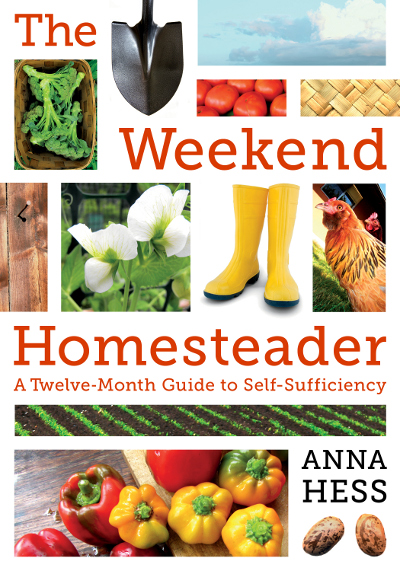
Hayes' homewreckers
 The second chunk of Radical
Homemakers continued
the
historical journey begun in the first two chapters, but I'd like to cut to the
chase and instead discuss Hayes' conclusions. She wrote that
three "homewreckers" are responsible for many of the ills in modern
American society: "the compulsion to overwork, the reckless pursuit of
affluence, and the credo of individualism."
The second chunk of Radical
Homemakers continued
the
historical journey begun in the first two chapters, but I'd like to cut to the
chase and instead discuss Hayes' conclusions. She wrote that
three "homewreckers" are responsible for many of the ills in modern
American society: "the compulsion to overwork, the reckless pursuit of
affluence, and the credo of individualism."
In my opinion,
overworking and trying to get rich are closely related topics, and I've
discussed them both in some depth before. For example, Hayes
agrees with others that income
does not necessarily equate to happiness, and adds that despite the
price tag attached to renewable energy, poor people in general tread
more lightly on the earth. If you haven't read about and thought
this issue to death previously, I definitely recommend you look through
Hayes' data to see if it speaks to you.
Although I agree with
her about the problematic American work ethic, the most
thought-provoking part of Hayes' argument came at the very end.
The dream household for a modern American, asserts Hayes, is large
enough to allow each family member to hide away with a television in
his or her own room, spending little time interacting with the rest of
the family or community. She relates that only seven percent of
American families spend more than half an hour at family dinners and
that the average American couple has only twelve minutes a day to
converse. As a nation, we are not only pursuing money, but also
independent privacy at the expense of a society centered around
skill-learning and social-capital-earning.
Mark and I are above
average when it comes to building the health of our two-person
household, but we still struggle with creating an
interdependent community (one of our big goals for
the next decade). I'd be curious to hear which of these
homewreckers you find most troublesome in your own life, and ---
zooming back out to the larger picture --- I hope you'll chime in on
whether you agree with Hayes' setup of the problem. There were a
lot  of other things to think
about in these two chapters as well, so feel free to bring up points
I've skipped here.
of other things to think
about in these two chapters as well, so feel free to bring up points
I've skipped here.
We'll be discussing
"Meet the Radical Homemakers" and chapter five next Wednesday, which
will start to bring us back out of the land of theory. (If you
get sick of pure philosophy the way I often do, this might be a good
place for you to start the book.) Newcomers are always welcome to
join the club!
The
Weekend Homesteader is now
in print! (Your copy probably still won't arrive for a couple of
months though.)
Want more in-depth information? Browse through our books.
Or explore more posts by date or by subject.
About us: Anna Hess and Mark Hamilton spent over a decade living self-sufficiently in the mountains of Virginia before moving north to start over from scratch in the foothills of Ohio. They've experimented with permaculture, no-till gardening, trailersteading, home-based microbusinesses and much more, writing about their adventures in both blogs and books.
Want to be notified when new comments are posted on this page? Click on the RSS button after you add a comment to subscribe to the comment feed, or simply check the box beside "email replies to me" while writing your comment.

I believe fear of not having enough leads to the compulsion of overworking and the reckless pursuit of affluence. Many are never comfortable with what they have. It is a shame.
DSG ZenPresence.com
I personally enjoy the diversity in people. If someone's dream is truly to have numerous televisions and watch them, I have no problem with that. I only see a problem if somebody is working towards that and they do not enjoy it, that is when a change needs to be made. It may not float my boat, but then I am the only one responsible for that. I think it is incorrect though to say that people are not involved with others. If somebody works outside of the home, they can interact with people in their place of employment. Children can interact with others at school. With technology, I can sit here at my desk in New Mexico and talk to you in Virginia. Pretty cool, if you were to ask me.
I also find the dinner time and conversation time arguments somewhat specious. If I spend all day with my husband, conversation is but a small part of it. There is a lot of interaction and give and take and the biggest treat is just having his presence. I also find if you spend more than 30 minutes at dinner, the food is going to get cold.
I would say that the greatest homewreckers are that people not taking the time to understand who they are and what they want and sometimes not having the courage to make the changes necessary to make the lives they truly want a reality. There are some who are disadvantaged enough to where that is possible but there is a large portion of the first world on autopilot.
Tisha --- Your last paragraph seems very true. I think that what Hayes is arguing is that people can't take the time to understand who they are and what they want if they're stuck in a cycle of working long hours and never getting time with their loved ones. Breaking free of that cycle won't automatically get you there, but it at least gives you the possibility.
I can't agree with 30 minutes at dinner being too long, though. Mark and I regularly spend an hour at lunch and dinner --- you eat the food and then you sit around and talk.
Mark and I regularly spend an hour at lunch and dinner --- you eat the food and then you sit around and talk.
I thought her description of "homewreckers" was spot on ... for other people. I just don't quite see how we fit. We really CAN'T change our situation much. We are already living on the minimum. I was talking with my husband last night about the book, and somehow the poverty line came up. I was like, "Do you actually know where the poverty line is?" He said, "I don't know, but it's more than we've ever made!" Huh. I didn't realize that. His salary is okay, but we're a family of four living on that.
On the other hand, maybe we have already made the jump, so to speak. I stay home with the kids, which is the main reason we've always been poor. It was always more important for us that one of us be with the kids than that they have a lot of "stuff." Two things about us totally blow the minds of my husband's coworkers: that we live on one income, and that we don't have a TV. I don't know if they've put two and two together and realize that that is why!
The hard part here is that I get to be a radical homemaker and my husband doesn't. We're treading water now and barely making it as it is. He doesn't mind his job overall, but he misses us and would like to spend more time at home. He travels for work and it's just so, so hard. We're people with simple desires, but desire #1 for all of us is to be together as a family. There is absolutely nothing more important. And yet we can't always have that. We're searching the job markets -- my husband just got his masters so surely something will turn up eventually that will give us enough wiggle room to make a few more changes. But this economy is crap and graduating from college -- debt included -- in 2008 was no picnic.
We'd love to have a farm someday but we have nothing, literally nothing, in the bank. So for now it's a someday.
That is kind of far from the text, sorry. I guess my main point is, these homewreckers exist, sure, but they're more than simply cultural. Our terrible economy is partly to blame. And, as my economics-obsessed husband likes to remind me, with the rate of inflation what it is, it is easier to borrow than to save, and all anyone can do is work like crazy and hope they won't be laid off, because no one has any real backup plan.